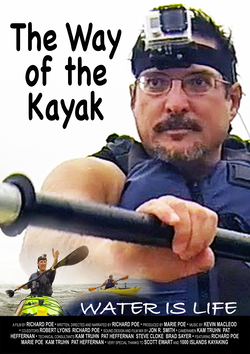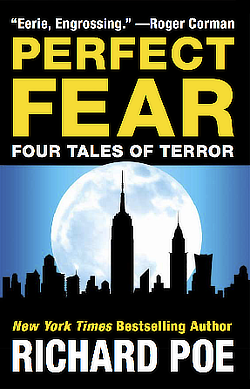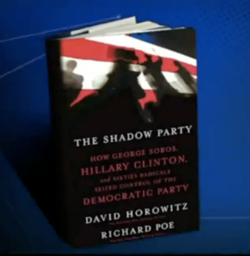Black Spark, White Fire: The Attack Begins
|
by Richard Poe Wednesday, July 30, 2003 3:13 pm Eastern Time |
Archives 5 Comments |
“This study is as breathless, lopsided, haphazard, and misinformed as can be imagined,” writes Alexander H. Joffe of Boston University in the Journal of Near Eastern Archaeology. Joffe is writing about my book, Black Spark, White Fire: Did African Explorers Civilize Ancient Europe?
The review is more than a year old, having been published in April 2002. My grateful thanks go to Hellenic race-blogger Dienekes Pontikos for bringing it to my attention.
Joffe continues:
“…[S]ecret or hidden history, locked away in Templar cemeteries in Scotland or elsewhere, is touted as a key to understanding. The invocation of the Masons simply carries this presentation over the edge into the antic realm of Graham Hancock and the X-Files. … Unintentionally, the book begins to read like a low-rent version of Umberto Eco’s Foucault’s Pendulum… All of this is presented with grave seriousness and endorsed by a jacket blurb from Martin Bernal and a foreword by the dean of Afrocentric extremism, Molefe Asante.”
Whew! Quite a searing indictment, wouldn’t you say?
While Joffe’s review is, ahem, somewhat less than effusive in its praise, I am nonetheless intrigued and honored by the fact that the Journal of Near Eastern Archaeology felt obliged to address Black Spark, White Fire at all. Even more intriguing is the fact that JNEA waited nearly five years to produce this clumsy hatchet job. Black Spark was published in 1998.
It would appear that the Brahmins of archaeology are finally beginning to accept the fact that they must say something — anything — about Black Spark, White Fire. Simply ignoring it will no longer do. Indeed, Joffe concludes his review with the ominous warning, “Scholars of the ancient Near East and Africa are unlikely to consult this volume, but they avoid it, and the issues it raises, at their peril.”
Yes, peril. He actually uses the word “peril.” According to Joffe, scholars who ignore the challenge of my book are courting danger!
Gee whiz. I didn’t mean to scare anyone. But I guess I’ll have to get used to this sort of scholarly hysteria. I hear it goes with the territory.
The Black Athena books of Cornell University historian Martin Bernal followed a similar trajectory. Bernal told me, in an interview on July 26, 1994, that the scholarly reception of Black Athena went through four stages, as predicted by philosopher and historian of science Thomas Kuhn in his landmark study, The Structure of Scientific Revolutions.
Drawing from Kuhn’s work, Bernal states that any writer or thinker who proposes fundamentally new ideas will encounter four stages of resistance. They are:
Stage 1. Ignore — In which scholars remain silent and pretend the new idea does not exist.
Stage 2. Dismiss – In which scholars ridicule the new idea as being too silly to merit a serious response.
Stage 3. Attack – In which scholars seek to discredit both the work and the author, using personal attacks in tandem with scientific and scholarly arguments.
Stage 4. Absorb – In which scholars attempt to minimize the work’s importance by saying that it covers old ground and is simply rehashing what everyone already knows.
When Bernal’s Black Athena, Volume I appeared in 1987, it aroused no great controversy. “Initially the attacks were very subdued,” Bernal told me. “I think that people who were hostile to it thought this is a fad. It will blow over. The less attention we pay to it, the sooner it will go.”
In Bernal’s case, it took four or five years before the scholarly Establishment began organizing a forceful counterattack. Since I am a mere journalist — and a cyber-journalist at that — the Establishment has responded even more slowly to Black Spark, White Fire. But they are responding, at long last.
Joffe’s piece in the Journal of Near Eastern Archaeology uses ridicule rather than scholarly argument to discredit my book. He therefore appears to be “dismissing” Black Spark rather than “attacking” it — a sure sign that we have entered, but not yet left, Stage Two.
Immigration reformer and Vdare.com editor Peter Brimelow — no stranger to head-on clashes with the Establishment — came up with the brilliant and amusing idea of reviewing reviews of his books. We will soon have a similar feature here on RichardPoe.com, at which time I will treat my readers to a more detailed critique of Dr. Joffe’s hatchet work.








This book is the biggest piece of garbage ever written. To say the ancient Egyptians were sub-Saharan black and that they gave birth to civilization is ludicrous. Obviously the ignorant author has never seen a single mummy of an Egyptian Pharoah like Seti I, Ramses I-III, Tutankhamen or of queens like Yuya, Thuya or Hepshepsut. They all were white, with either red or blonde hair. The oldest mummy ever found in Egypt, 6,000 years old, is nicknamed “Ginger” because of his red hair.